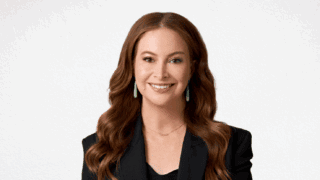The Lavin Agency Speakers Bureau
A speakers bureau that represents the best original thinkers,
writers, and doers for speaking engagements.
A speakers bureau that represents the best original thinkers,
writers, and doers for speaking engagements.
Recognizing and answering the unspoken questions of life—Can I succeed? Do I belong?—will build trust, strengthen relationships, and change all our lives.
We all face big questions as we go through life: Do I belong? Can I trust you? But sometimes we can’t see these questions for what they are—either in ourselves or in other people. Stanford professor Gregory M. Walton offers us a new way forward. As the author of Ordinary Magic and co-director of the Dweck-Walton Lab (alongside mindset pioneer Carol Dweck), Greg has spent over a decade helping parents, managers, and educators recognize specific questions when they pop up—and learn to answer them well. Through these surprisingly simple, easy-to-implement “wise” interventions, leaders and mentors in any field can build trust, overcome conflict, and help the people we lead achieve their goals.
One of the great psychologists of our time.—Carol Dweck, multi-million copy bestselling author of Mindset
Gregory M. Walton is the Michael Forman University Fellow and Professor of Psychology at Stanford University. His research focuses on the psychological processes that contribute to social problems, and how “wise interventions” that target these processes can mitigate these problems and help people flourish.
He is the author of Ordinary Magic: The Science of How We Can Achieve Big Change with Small Acts, which #1 New York Times bestselling author Adam Grant describes as “an eye-opening look at how we have more power to improve our lives than we realize.” In it, Greg reveals the big, often unstated questions that we face in life, and how simple interventions can help us shift our perspectives (and the perspectives of the people we lead). “Left unaddressed, these questions drive us to spiral down,” he says. “They make us pull back from the goals we care most about. They exacerbate conflict and mistrust. But when we see these questions clearly, when we understand how contexts place specific questions on the table, we can develop answers that help us spiral up.”
In talks, he draws on his book to offer vivid storytelling and actionable steps that anyone can take to bring out the best in those around them. A few simple words can build trust and achievement in the people you lead. Even a few minutes to reflect before a confrontation can deepen intimacy among couples. Simple messages in school can improve students’ lives a decade later.
Greg has received awards from numerous associations, including the American Psychological Association (APA), the American Education Research Association, and the Society for Experimental Social Psychology. His research has been supported by the Institute for Education Sciences, the National Institute of Health, the Bill and Melinda Gates Foundation, and many more. It has also been covered across the press, including in The New York Times, Harvard Business Review, The Wall Street Journal, NPR, The Washington Post, and The Los Angeles Times.

Author, Stress Resets Clinical Psychologist

Host and Creator of Challenge Accepted, the YouTube Series with 5 Million Followers TIME100 Honoree

Speaker on AI and Education Executive Director of the Stanford Accelerator for Learning

Author, Today Was Fun: A Book About Work (Seriously) Workplace Culture Expert Senior Advisor, SYPartners

Author, Lucky by Design Wharton Professor of Business Economics and Public Policy Forbes 30 Under 30 in Law and Policy

Harvard Business School Behavioral Science Professor "40 Under 40 MBA Professor" Author of TALK: The Science of Conversation and the Art of Being Ourselves

#1 New York Times Bestselling Author of Grit and Situated | Pioneering Researcher on Grit, Perseverance, and the Science of Success

Nobel Prize Winner | 3rd Most Cited Economist in the World | Bestselling Co-Author of Why Nations Fail and Power and Progress

Harvard Business School Behavioral Science Professor | "40 Under 40 MBA Professor" | Author of TALK: The Science of Conversation and the Art of Being Ourselves

#1 New York Times Bestselling Co-Author of Abundance | Host of thePlain English Podcast | Founder of the Substack Derek Thompson

#1 New York Times Bestselling Author of How the Word Is Passed and Above Ground | The Atlantic Staff Writer

“Psychologically ‘wise’ interventions anticipate the questions all of us face as we travel life: Do I belong? Can I do it? Can I trust you?” says Stanford professor Gregory M. Walton. “Left unaddressed, these questions drive us down. They make us pull back from the goals we care most about. They exacerbate conflict and mistrust. But when we see these questions clearly—when we understand how contexts place specific questions on the table—we can develop answers that help us spiral up, build belonging and trust, overcome conflict, and work toward our goals.”
In this accessible, immediately actionable keynote, Gregory draws on his work as the co-director of the Dweck-Walton Lab at Stanford (alongside mindset pioneer Carol Dweck), revealing both the questions that we face and how to answer them. He shows how leaders, teachers, mentors, and everyone else can use simple tools to shift the perspectives of those around you and unlock stronger team cohesion, better academic or company outcomes, and increased wellbeing for the people you lead. He draws on hundreds of simple interventions in every field (including yours) and equips you with the tools to turn your biggest problems into your biggest opportunities. These are small acts, he says—but they can change our lives.